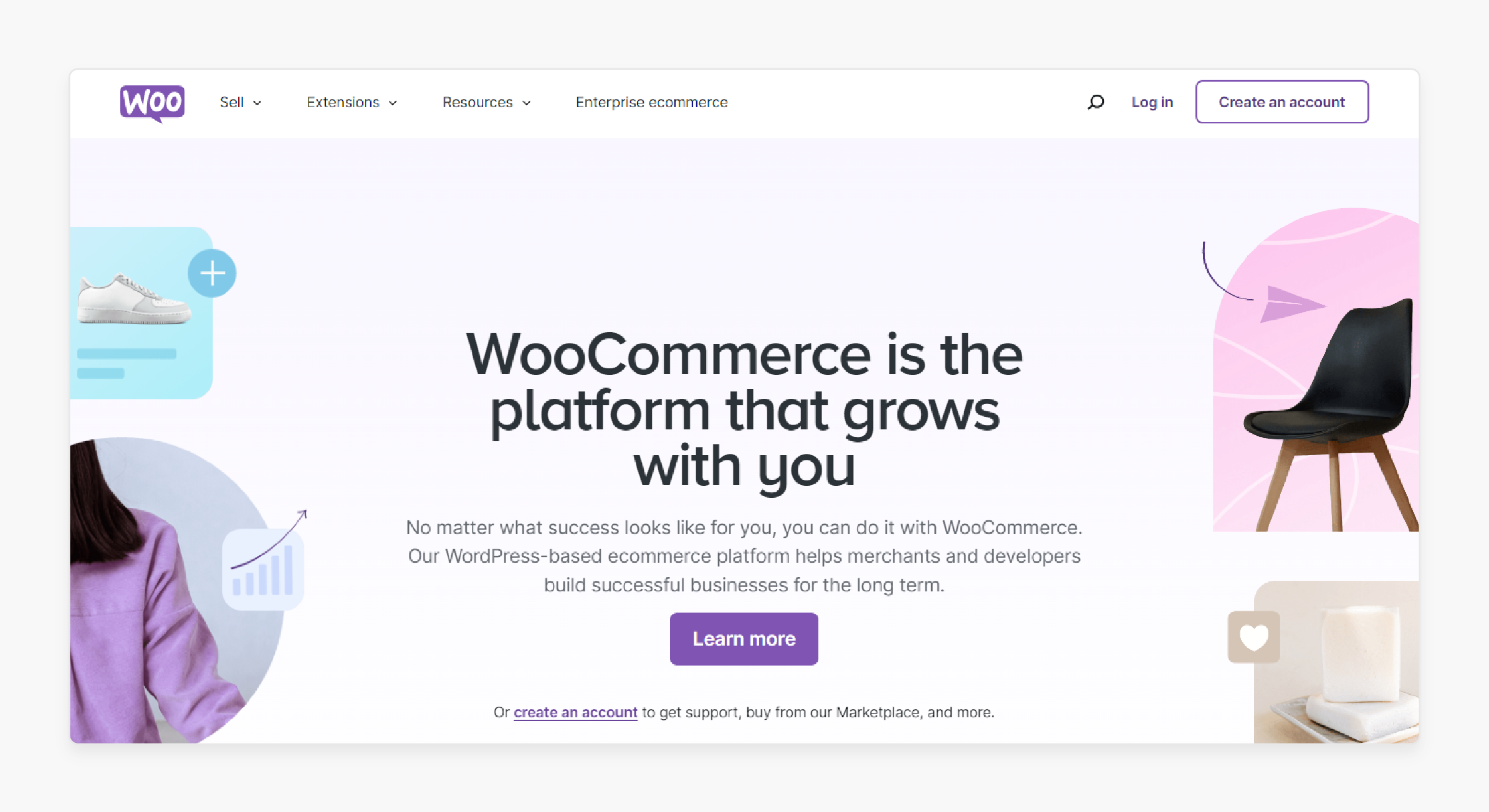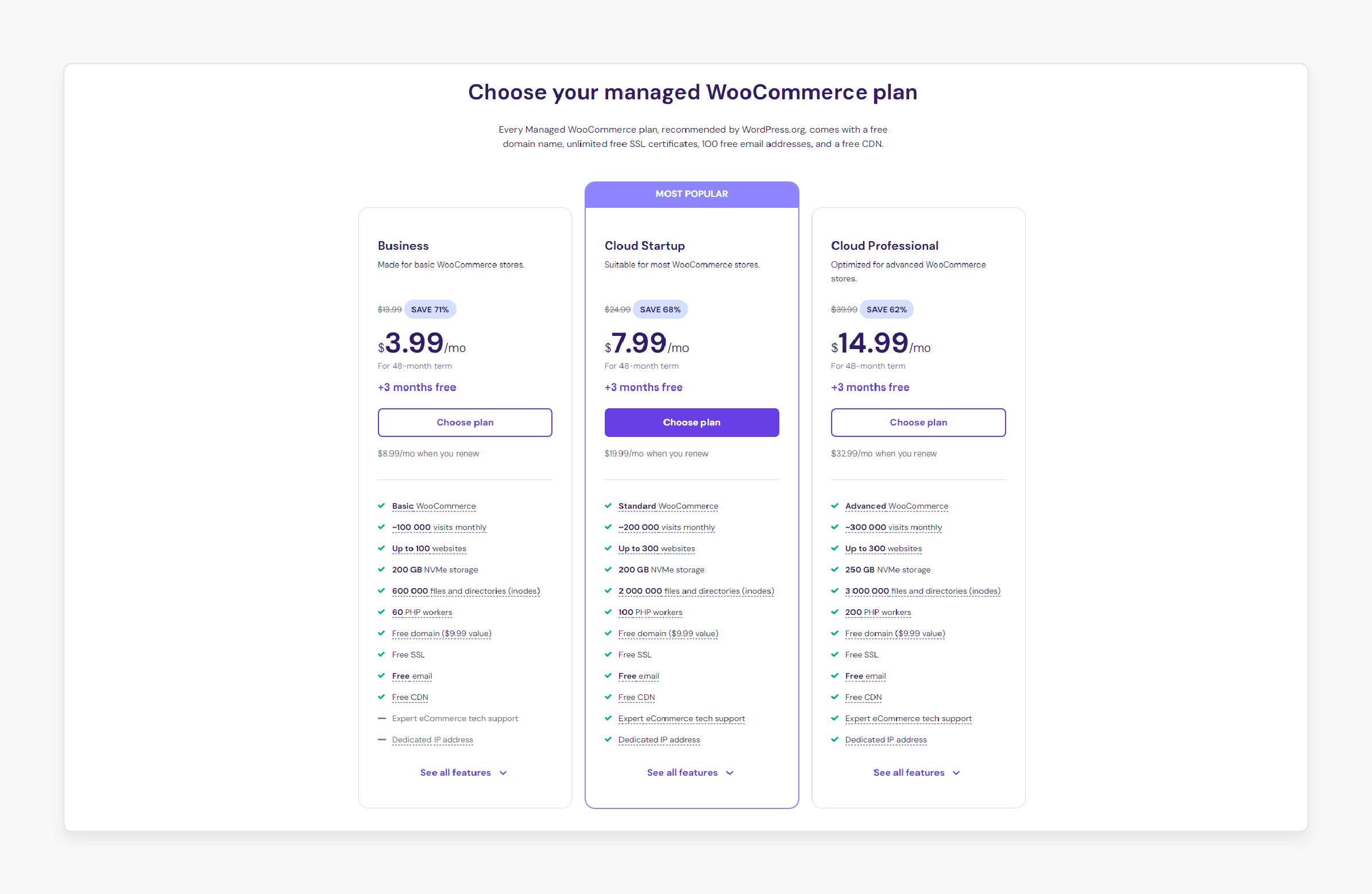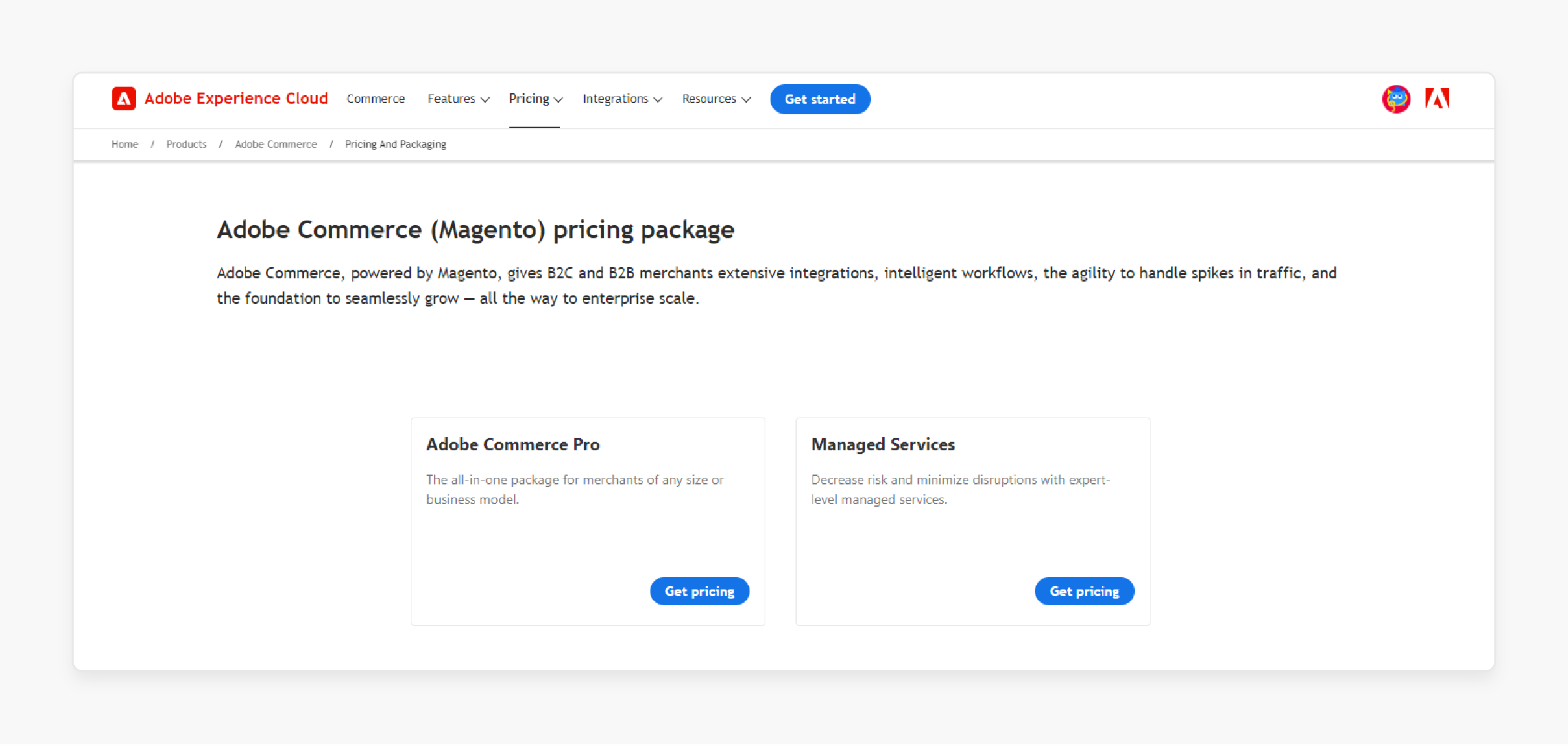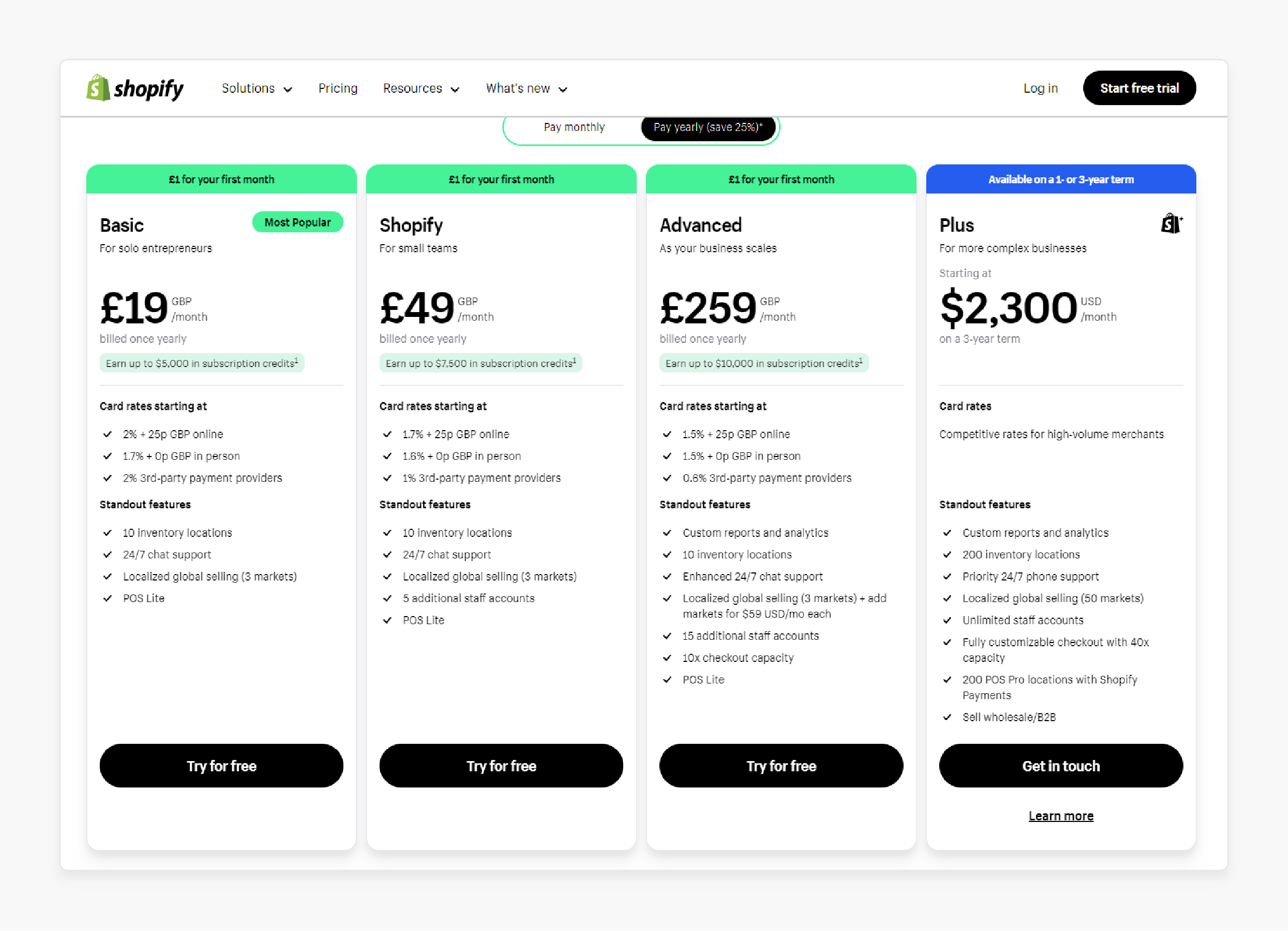
Shopify vs. WooCommerce vs. Magento: Which Ecommerce Platform is Best?
Are you wondering which ecommerce platform is best for your online store? Shopify vs. WooCommerce vs. Magento are three popular options for your business. Choosing the right platform is essential for your store's success.
This article will compare Shopify vs. WooCommerce vs. Magento to help you decide.
Key Takeaways
-
What are the aspects of Shopify, WooCommerce, and Magento?
-
Key features of Shopify, WooCommerce, and Magento are outlined for ecommerce success.
-
Simple factors to consider when choosing the right platform between the three platforms.
-
Best use cases of Shopify, WooCommerce, and Magento Commerce for businesses.
-
A detailed comparison of Magento with WooCommerce and Shopify highlights the differences.
-
The pros and cons of Shopify, Magento Open Source, and WooCommerce to understand.
-
Different pricing plans for ecommerce users between- Magento, Shopify, and WooCommerce.
-
Reasons to choose the best ecommerce platform for your business and advanced features.
-
6 Features of Shopify vs. WooCommerce vs. Magento in Ecommerce Platform
-
Factors to Consider When Choosing Shopify vs. WooCommerce vs. Magento
-
Shopify vs. WooCommerce vs. Magento: Best Use Cases in Ecommerce Store
-
Magento vs. WooCommerce vs. Shopify: Detailed Key Differences
-
Magento vs. Shopify vs. WooCommerce: Pricing Plans for Online Stores
-
Which E-Commerce Platform Is Best for Your Business? Shopify vs. WooCommerce vs. Magento
Definitions of Shopify vs. WooCommerce vs. Magento
What is Shopify?

Shopify is a hosted e-commerce platform known for its ease of use. It is popular for businesses that want to avoid the hassle of self-hosting.
Shopify was founded in 2006 and is a cloud-based, all-in-one ecommerce solution. It offers a user-friendly interface and a strong Shopify app ecosystem. WooCommerce and Magento, which are open-source, require more technical skills. Shopify provides a fully hosted solution and does not require any technical expertise.
What is WooCommerce?

WooCommerce is an open-source ecommerce plugin for WordPress. It lets users turn a website into an online store.
WooCommerce was launched in 2011. It is designed for small to large-sized online merchants using WordPress. WooCommerce is flexible and adds extra features with WooCommerce themes and plugins. It needs more technical knowledge but gives you more control. WooCommerce is easier to use and costs less.
What is Magento?

Magento is a powerful open-source platform. It helps businesses build and manage online stores. Magento is known for its customization and scalability.
Magento was released in 2008. It was acquired by Adobe Inc. in 2018. Magento offers better performance, security, and ease of use. Compared to WooCommerce and Shopify, Magento is more feature-rich. It is popular with both small businesses and large enterprises.
Magento excels in customization, offering many Magento themes and extensions to enhance functionality. The platform provides a strong community and free support through forums and documentation. If users prefer high-level customization, Magento is their best ecommerce platform.
6 Features of Shopify vs. WooCommerce vs. Magento in Ecommerce Platform
1. Ease of Use
-
Shopify: Known for its easy-to-use interface with a drag-and-drop builder. It is great for beginners as it manages hosting, security, and user updates. Technical skills are optional to set up or run a Shopify store.
-
WooCommerce: It is a WordPress plugin that requires a more technical setup. Users need to set up hosting, install WordPress, and configure themes before using. It is free but best for those who already know WordPress.
-
Magento: Offers unmatched control and flexibility. It allows businesses to customize their store to meet unique needs fully. Magento provides advanced features designed for growing and large businesses. It is a powerful platform for those ready to invest in building a scalable, feature-rich store.
2. Security
-
Shopify: Offers built-in security with SSL certificates and PCI compliance. It ensures secure transactions. Shopify handles security, so there is no need to worry about data breaches. Users can also use Shopify Payments without extra fees.
-
WooCommerce: Since WooCommerce is self-hosted, users are responsible for their store’s security. They must set up SSL certificates through a hosting provider and manage updates. WooCommerce provides regular updates to keep the e-commerce store secure.
-
Magento: Magento provides excellent security features and regular updates. Users can add Magento 2 security extensions to protect their stores. Magento requires technical skills, but it is highly secure for larger businesses.
3. Design and Customization
-
Shopify: Shopify allows users to choose from over 200 pre-designed themes. Customization is limited, though users can use Liquid code for some changes. It is easy but not ideal for deep customization.
-
WooCommerce: WooCommerce provides complete control over design and features. Users can use WooCommerce plugins and themes to make their store look exactly how they want. WooCommerce development is flexible but may require some coding knowledge.
-
Magento: Magento is also highly customizable. Users have full access to the code, allowing them to change every part of their Magento store. It also provides unlimited options for creating custom themes. Magento makes the best choice for businesses that need unique designs.
4. SEO Features
-
Shopify: Suitable for basic SEO features, like editable page titles and meta descriptions. It generates sitemaps automatically, with more options available through apps.
-
WooCommerce: It comes with great SEO tools. Users can use plugins like Yoast SEO to boost their site’s rankings. Although WooCommerce offers flexibility, SEO requires more manual setup.
-
Magento: Known for strong SEO features, like customizable URLs, meta tags, and sitemaps. Magento ecommerce offers advanced options like layered navigation and canonical tags.
5. Support
-
Shopify: Shopify allows 24/7 support via chat, phone, or email. It has an extensive knowledge base and community forums. For more help, users can hire Shopify experts. It makes Shopify an excellent choice for those who need ongoing support.
-
WooCommerce: Support for WooCommerce also comes from the community, forums, and tutorials. While there is a lot of information available. Users can hire developers or WooExperts for extra help. Its support is available but not as immediate as Shopify's.
-
Magento: Magento offers two types of support-
-
Community support for Magento Open Source users
-
Premium support for Magento Commerce users.
-
There are many Magento development services available. The Magento community is large and helpful. This makes Magento a great choice for businesses that need technical support.
6. Apps and Add-ons
-
Shopify: Shopify handles apps easily, offering over 8,500 apps in the Shopify App Store. These apps add extra features, but Shopify charges additional fees for many. Users can add marketing tools, payment gateways, and more.
-
WooCommerce: WooCommerce provides access to over 56,000 WordPress plugins. Users can use these to add features like payment options, marketing tools, and more. WooCommerce plugins offer more customization than Shopify.
-
Magento: Magento offers two types of extensions- free and paid. They are provided through the Magento Marketplace. It covers everything from payments to marketing and security. Magento offers advanced options for businesses needing custom features and scalability.
Factors to Consider When Choosing Shopify vs. WooCommerce vs. Magento
| Factors | Shopify | WooCommerce | Magento |
|---|---|---|---|
| Budget and Cost | Subscription model with additional costs for themes, apps, and transaction fees. | WooCommerce is free, but you will pay for hosting, themes, and plugins. | Free, open-source version, but high hosting, development, and maintenance costs. |
| Hosting and Security | It is a fully hosted platform. Shopify handles hosting, security, and maintenance. | It is free, but you manage hosting and security yourself. | Self-hosted; you manage hosting, support and maintenance. |
| Technical Expertise | Designed for simplicity, minimal technical skills are needed. | WooCommerce is a WordPress plugin. It works well for users familiar with WordPress and WooCommerce. | It requires the most technical expertise and a steep learning curve. |
| SEO and Marketing | Basic SEO features and marketing tools; easy to use but less customizable. | WooCommerce is a good option for SEO. It has many optimization plugins. | Strong SEO capabilities with advanced options out-of-the-box. |
| Scalability and Growth | Scales with business size may face limitations with extensive customizations. | WooCommerce dashboard works well for growing businesses but may require more resources. | Built for scalability and ideal for enterprise-level businesses. |
| Support and Community | 24/7 customer support with a large, active community providing many user-generated resources. | The WooCommerce website has strong community support and forums. It comes with paid premium support for dedicated WooCommerce. | Large, active community with free support via forums. Magento has paid support available for enterprise users. |
| Customization | Simplified customization with a theme editor and app store but limited control. | WooCommerce plugin provides full customization with many plugins and themes. | Offers the most flexibility with full customization capabilities. |
| Overall Suitability | Ideal for those looking for a simple and quick setup. Shopify is mainly for users who are familiar with WordPress. | WooCommerce is an easy-to-use option. It is for small businesses that are familiar with basic WooCommerce. | Best for businesses needing extensive customization and willing to invest in technical expertise. |
Shopify vs. WooCommerce vs. Magento: Best Use Cases in Ecommerce Store
1. Shopify
-
Best for beginners and small to medium businesses with straightforward needs.
-
Quick and easy setup without requiring much technical skill.
-
Ideal for businesses seeking an all-in-one Shopify platform for hosting, security, and support.
-
Works well for stores with simple products and basic shipping requirements.
-
Suitable for dropshipping or businesses using standard Shopify or basic Shopify plans. It may need more depth in customization.
2. WooCommerce
-
Ideal for businesses already using WordPress and familiar with WooCommerce store.
-
Great for small to medium businesses wanting flexibility and more control.
-
WooCommerce is a free plugin. It is a budget-friendly option, though hosting and plugins come at an extra cost.
-
Perfect for content-heavy stores that rely on blogging and marketing. It uses WooCommerce analytics for insights.
-
Suitable for those who want customization. It may need more resources to avoid scalability issues.
3. Magento
-
Magento is best for businesses aiming to have complete control over e-commerce operations.
-
Ideal for large enterprises with complex e-commerce needs and advanced customizations.
-
Excels in handling big product catalogs, advanced multi-store management, and global operations.
-
Magento CMS offers unmatched flexibility for deep customization. It is a perfect choice for businesses with unique requirements.
-
Magento integration allows businesses to create highly customized experiences. Other platforms like Shopify, WooCommerce, and Pretashop do not match the customization level.
-
Magento 2 is designed for scalability. It is the top choice for businesses that plan to grow and dominate their market.
-
Magento clearly outshines enterprise-level customization, scalability, and performance when compared with WooCommerce.
Magento vs. WooCommerce vs. Shopify: Detailed Key Differences
| Platform | Magento | WooCommerce | Shopify |
|---|---|---|---|
| Hosting | Self-Hosted | Open-Source | Hosted by Platform |
| Features | Extensive built-in features, a large marketplace for extensions | Comprehensive features with flexibility through plugins and themes | Comprehensive built-in features, extensive app store |
| Ease of Use | Steeper learning curve. Better suited for users with technical expertise. | User-friendly with WordPress integration. Moderate learning curve. | Extremely user-friendly, Shopify is the best choice for beginners. |
| Best Suited For | Medium to large enterprises with complex needs. Magento is an excellent choice for customization. | Small and medium businesses need flexibility and WordPress familiarity. | Businesses of all sizes that prioritize ease of use. |
| Themes | Limited free and paid themes are available | A wide range of free and paid themes via the WordPress | Good range of free and paid themes |
| Apps/Extensions | Extension Marketplace | Thousands of plugins are available in the WordPress Plugin Directory | Extensive number of apps |
| Customization | Highly customizable, full access to source code | Highly customizable, extensive flexibility with WordPress integration. | Moderate customization, limited access to theme code |
| Payment Gateways | Built-in integration with PayPal and Braintree | Supports major gateways like PayPal, Stripe, and more through plugins | Integrated Shopify plus support for 100+ third-party payment providers. Fees when using Shopify Payments apply. |
| Design | Extensive design flexibility. Suitable for businesses with unique branding needs. | Inherits diverse WordPress themes. Provides ample design options. | Professionally designed themes. Easily customizable for a streamlined look. |
| SEO | Advanced SEO customization capabilities. Ideal for businesses focused on search engine dominance. | Inherits powerful SEO capabilities from WordPress. Suitable for advanced SEO strategies. | Built-in SEO features. Fitting for basic SEO needs. |
| Customer Support | Community-driven support (open-source), paid support available (enterprise version) | Forums, documentation, and a large community. Paid support through WooExperts is available | 24/7 support via phone, email, and live chat |
| Email Marketing Tools | Advanced tools available through extensions | Email marketing tools are available through plugins and integrations with platforms like Mailchimp. | Built-in tools and integrations with major platforms |
Pros and Cons of Shopify vs. Magento vs. WooCommerce
1. Shopify
Pros
-
Shopify is very user-friendly and great for beginners.
-
Fully hosted, so you don’t need to manage infrastructure with Shopify account.
-
Shopify offers a large app store to add features to Shopify.
-
Secure and reliable, with built-in SSL and PCI compliance. Shopify also provides strong security.
-
Excellent support and easy-to-follow documentation are available.
-
Transparent pricing plans with no hidden fees, unlike Magento or WooCommerce.
Cons
-
Limited customization compared to WooCommerce or Magento. It has, with no access to core code.
-
Shopify also charges transaction fees if you use external payment gateways.
-
It is not ideal for large catalogs or complex products, unlike Magento and WooCommerce.
-
Migrating from Shopify can be challenging, so choose Shopify carefully.
2. Magento
Pros
-
Magento 2 is highly flexible and customizable, perfect for businesses with complex needs.
-
It handles extensive product catalog management and high sales, making it perfect for bigger stores.
-
Magento offers many built-in e-commerce features.
-
Strong SEO capabilities with advanced options available in Magento.
-
Scalable for large enterprises like Magento enterprise.
-
Supported by an active Magento community and a large marketplace for extensions offered by Magento.
Cons
-
Requires Technical Expertise: Magento needs some technical skills. However, with training and support, your team can effectively use its features.
-
High Development and Maintenance Costs: Development and upkeep can be expensive. But it reflects Magento’s strong capabilities. Professional Magento hosting can manage these costs.
-
Needs Enhanced Hosting: Magento needs powerful hosting, which can be costly. It ensures better performance and reliability, making the investment worth it.
-
Complex for Small Businesses: Magento might seem too complex for smaller businesses. However, its features support growth, so it can scale as your business grows.
-
Fewer Free Themes and Extensions: Magento has fewer free themes and extensions. However, the paid options are often of higher quality. Investing in them can make your store stand out.
3. WooCommerce
Pros
-
WooCommerce is free and open-source, giving you complete control over customization.
-
Highly customizable, with many plugins and themes available.
-
Smooth WordPress integration, making it ideal for WordPress users.
-
WooCommerce benefits from WordPress’s strong SEO-friendly features.
Cons
-
Self-hosted: Handle hosting, security, and updates may need technical knowledge.
-
Costs for add-ons: Though WooCommerce is free, users will likely pay for plugins.
-
Learning curve: It takes time to learn, especially for new WordPress users.
-
Performance issues: If not optimized, WooCommerce can slow down as your store grows.
Magento vs. Shopify vs. WooCommerce: Pricing Plans for Online Stores
1. WooCommerce

WooCommerce plans offer:
-
Business (for basic stores): $3.99 per month.
-
Cloud Startup (for standard stores): $7.99 per month.
-
Cloud Professional (for advanced stores): $14.99 per month.
2. Magento

-
Magento Open Source: Free
-
Magento Commerce: $24,000+/year
-
Magento Commerce Cloud: $32,000+/year
3. Shopify

Shopify offers four pricing options:
-
Basic (for solo entrepreneurs): £25 per month.
-
Shopify (for small teams): £64 per month.
-
Advanced (as per business needs): £344 per month.
-
Shopify Plus (for more complex businesses): $2,300 per month.
Which E-Commerce Platform Is Best for Your Business? Shopify vs. WooCommerce vs. Magento
1. Shopify
Best For:
-
Ease of Use: Shopify is user-friendly. It is ideal for beginners or those who want to avoid dealing with technical details.
-
All-in-One Solution: Shopify also handles everything from hosting to security. It makes it a simple and hassle-free option for the users.
-
Quick Setup: Shopify offers a wide range of apps. You can quickly integrate third-party tools with little technical know-how.
Challenges:
-
Limited Customization: Compared to Magento vs WooCommerce. It gives less control over your store’s customization.
-
Costs Can Add Up: Shopify has transparent pricing. Extra costs can arise from transaction fees and paid apps.
2. WooCommerce
Best For:
-
WordPress Users: It is a WordPress plugin. WooCommerce is the perfect choice for businesses already using WordPress.
-
Customization: Highly customizable, offering flexibility through plugins and themes. It is great for businesses needing more control.
-
Cost-Effective: Free to start with. Businesses can choose hosting and features based on their budget, making it cost-effective.
-
SEO-Friendly: Inherits WordPress’s strong SEO capabilities. It is ideal for businesses focused on organic growth.
Challenges:
-
Self-Hosted: Users need to manage their hosting, security, and updates. It requires technical knowledge.
-
Add-On Costs: While WooCommerce is free, the costs of plugins, themes, and hosting add up as the store grows.
-
Learning Curve: WooCommerce requires time to learn, especially for users unfamiliar with WordPress.
3. Magento
Best For:
-
Large Businesses: Great for businesses with large product catalogs and high sales. It is built to scale and handle complex needs.
-
Customization: Magento offers unmatched flexibility. You can customize almost every aspect of your store.
-
Advanced Features: Magento, in terms of built-in features, is strong. It is perfect for businesses needing advanced functionality out of the box.
Challenges:
-
Technical Requirements: Using Magento needs technical knowledge. It can be complex to set up and manage.
-
Higher Costs: Running a Magento store can be expensive. It might be due to hosting, development, and maintenance.
FAQs
1. What is the difference between Shopify and Magento?
Shopify and Magento are both popular platforms, but they serve different needs. Shopify is easy for beginners. Magento, formerly known as Adobe Commerce, offers more customization for bigger stores.
2. What are the transaction fees when using Shopify?
Transaction fees when using Shopify depend on your plan. You can avoid them by using Shopify Payments. If you use another payment gateway, extra fees apply.
3. What makes Magento different from WooCommerce?
When comparing Magento vs WooCommerce, Magento is better for large businesses with complex needs. WooCommerce works well for smaller stores and is easier to use with WordPress.
4. What is Advanced Shopify, and when should you use it?
Advanced Shopify is a higher-level plan. It is best for businesses that need:
-
Detailed advanced reports
-
Better shipping rates
-
Lower transaction fees when using Shopify.
5. Is Magento good for large businesses?
Magento is great for large businesses. It can manage extensive product catalogs and handle high sales and volume of traffic. Its scalability and customization options make it ideal for companies with advanced needs. Magento 2 allows complete control over store functionality, design, and integrations.
6. What are the pros and cons of comparing Magento vs Shopify?
When comparing Magento vs Shopify, Magento is better for businesses needing more control. It is perfect for handling complex multi-store management and customized functionalities. While Shopify is easier to use, Magento's flexibility and scalability make it a top choice. It helps businesses grow and dominate in a competitive market. With Magento, you can build a unique e-commerce experience. It scales with your business needs.
Summary
Shopify vs. WooCommerce vs. Magento are three popular options for your business. Shopify provides a fully hosted solution for businesses of all sizes. WooCommerce offers flexibility. Magento excels in customization for large enterprises. It has a flexible architecture and advanced product management capabilities.
Consider the following while selecting the best ecommerce for your business:
-
Choose Shopify if you prefer a simple, fully hosted platform with a quick setup. It has minimal technical requirements.
-
Use WooCommerce if you prefer full customization and already have a WordPress website.
-
Use Magento if you run a large enterprise needing extensive customization and scalability. It offers advanced customization.
Explore Magento Hosting Plans to find the best fit for your e-commerce business needs.





